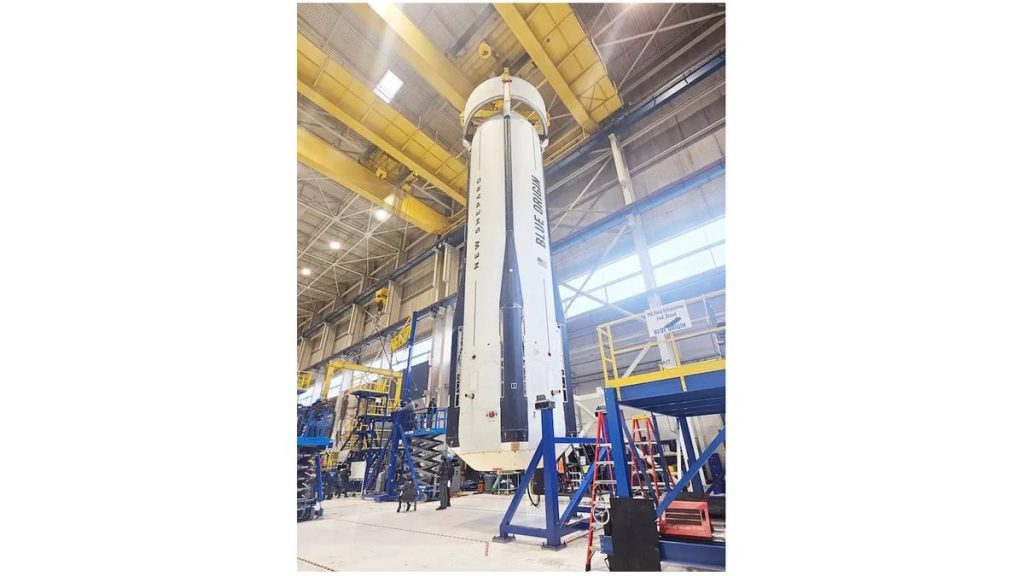Blue Origin will debut a new spacecraft on Monday (Oct. 7), if all goes according to plan.
Jeff Bezos‘ aerospace company plans to launch its uncrewed NS-27 mission Monday morning, sending its New Shepard rocket-capsule combo on a brief trip to suborbital space. It will be the first mission for this particular vehicle, according to Blue Origin.
NS-27 will launch from the company’s West Texas site during a window that opens at 9:00 a.m. EDT (1300 GMT; 8:00 a.m. local Texas time). You can watch the action live via Blue Origin and here at Space.com, if, as expected, the company makes its feed available. Coverage will begin at 8:45 a.m. EDT (1245 GMT).
NS-27 will mark the debut of the second human-rated New Shepard vehicle, which consists of a first stage known as Booster 5 and a crew capsule named RSS Kármán Line. (The Kármán line is the 62-mile-high boundary that many people regard as the start of outer space.)
“The vehicle features technology upgrades to improve the vehicle’s performance and reusability, an updated livery and accommodations for payloads on the booster,” Blue Origin wrote in a statement today (Oct. 4).
No people will go up on NS-27, but the mission will fly 12 research payloads, five of them on the booster and seven inside the capsule. This gear includes new navigation systems developed for New Shepard and Blue Origin’s huge New Glenn rocket, as well as two LIDAR (light detection and ranging) sensors designed to operate in the lunar environment, according to Blue Origin.
As its name suggests, NS-27 will be the 27th New Shepard mission overall. Eight of the vehicle’s 26 flights to date have been crewed, sending up to six people at a time on brief trips to the final frontier.
Those eight crewed flights have all used the same New Shepard vehicle — the Booster 4/RSS First Step combo. This second human-rated spacecraft will enable “expanded flight capacity to better meet growing customer demand,” the company wrote in today’s statement.

